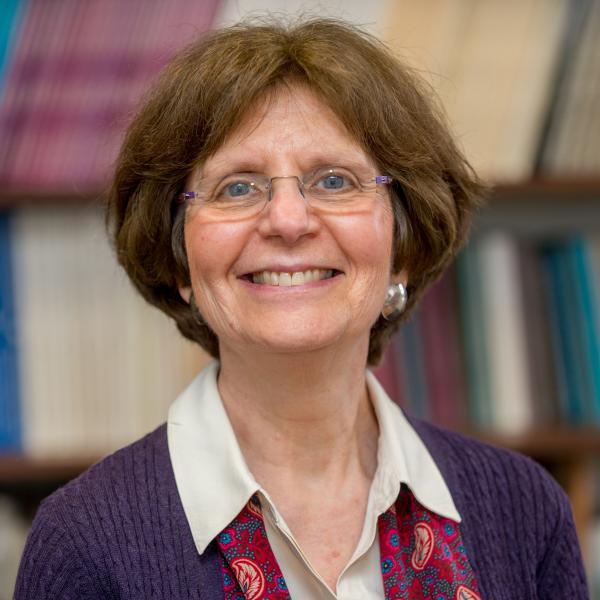
Dr. Susan Gal has conducted ethnographic and linguistic field research in Austria and Hungary, including both urban and rural settings. Her first book, Language Shift: Social Determinants of Linguistic Change in Bilingual Austria (Academic: 1979), examined the situation of a Hungarian minority in Austria and continues to be excerpted in standard textbooks of the field. Since then she has published widely on language ideology, linguistic variation, language change, multilingualism and its political economic sources and consequences, on political rhetoric and on the history of European linguistics. She has worked on gender and politics as well as semiotic and linguistic approaches to understanding public communication. Most recently, she published a book outlining a novel approach to language ideology as it constructs social and linguistic differentiation. Gal was the recipient of a Simon Guggenheim Memorial Fellowship in 2002, as well as an SSRC-ACLS International Fellowship. She has also received Fulbright, ACLS and NIMH Fellowships. Gal is a member of the American Academy of Arts and Sciences. She is currently engaged in a project on mass media and communication in the post-communist period in the east of Europe.
Signs of Difference, Gal’s most recent book, co-authored with Judith T. Irvine, is the winner of the 2021 Edward Sapir Prize of the Society for Linguistic Anthropology of the American Anthropological Association. The Sapir Prize is awarded biennially to a book that makes the most significant contribution to our understanding of language in society, or the ways in which language mediates historical or contemporary sociocultural processes.
Recent Publications
Books:
- Language Shift (1979)
- The Politics of Gender After Socialism (2000, co-authored with Gail Kligman)
- Languages and Publics: The Making of Authority (2014, co-edited with K. Woolard)
- Signs of Difference: Language and Ideology in Social Life (2019, co-authored with Judith T. Irvine)
Articles/Chapters:
- "Sociolinguistic differentiation." 2016. IN N. Coupland (ed.) Sociolinguistics: Theoretical Debates. Cambridge University Press: New York.
- "Politics of translation." 2015. Annual Review of Anthropology. November #44:225-240.
- "John Gumperz’s Discourse Strategies." 2014. Journal of Linguistic Anthropology 23:1:115-126.
- "Tastes of Talk: Qualia and the Moral Flavor of Signs." 2013. Anthropological Theory 31:31-48.
- "Language and political space." 2008. IN Peter Auer and Jurgen Erich Schmidt (eds.) Language and Space Mouton deGruyter.
- "Contradictions of standard language in Europe: Implications for the study of publics and practices." 2006. Social Anthropology 14:2:163-181.
Recent Courses
Linguistic Politics: Language Revitalization (LING 27430)
Linguists and the general public have long been alarmed about the number of languages that disappear from use, and so are no longer spoken in the world. Their speakers shift to other languages. As part of the response, social groups have been mobilizing for many decades to prevent such lapses/losses and shifts in use and to document, revitalize, archive and mobilize the resources of communication. This course takes up the processes by which shift happens, asking what "language" is in these transformations; what and how linguistic forms, cultural values, and social institutions are involved and what social activism can or cannot accomplish in the "saving" of languages.
Professional Persuasions: The Rhetoric of Expertise (LING 27505)
How do experts persuade us? How is expertise enacted in discourse? This course examines the linguistic forms and semiotic processes by which various kinds of experts persuade their clients, competitors and the public to trust them and rely on the forms of knowledge they practice. How do they gain authority, maintain standards of ethical responsibility, convince us we have problems to be addressed by their knowledge practices? We will consider the discursive processes of practice, training and apprenticeship of lawyers, economists, social workers, research scientists, doctors. We take a close look at how the expertise/knowledge to create/identify and solve social problems is enacted, institutionalized and contested among professions. The goal of the course is to examine a central feature of modern life, the reliance on experts, by analyzing the way expertise is a matter of linguistic practices: rhetoric, reading, writing.
Language in Culture 1 (LING 37201)
A foundational course introducing semiotic processes and the methods, approaches and histories of linguistic anthropology. Among topics discussed in the first half of the sequence are the formal structure of semiotic systems, the ethnographically crucial incorporation of linguistic forms into cultural systems, the organization and centrality of interaction ritual and the methods for empirical investigation of “functional” semiotic structure and history.
Language in Culture 2 (LING 37202)
The second half of the sequence takes up basic concepts in sociolinguistics and their critique. We study the organization of linguistic variation in speech communities and language communities, the enregisterment of variation; multilingualism and style, the semiotics of language ideology and the implication of linguistic study for discourse analysis and ethnographic investigation.
Narrativity (LING 57725)
The power of narrativity remains mysterious. One half of this seminar takes up the classic philosophical questions about time, experience and their linguistic/textual representations that cluster around "narrativity" and that have long pre-occupied historians, literary/media theorists and anthropologists. The making, telling and re-telling of stories in varying genres organizes subjectivity, political power, visions of the self, of the social future as well as the past. It is a central tool for any sociocultural understanding; necessary to the production of knowledge, even for statistical and mathematical theories. How? Why? The seminar's other half addresses narrativity as a methodological conundrum. How does one find stories in fieldwork? What are the analytical modalities through which narrative has been approached: as structure, interactional process, social organization and consequential action? How are the stories we tell different (or not) from the stories we report as ethnographic material and analysis?
